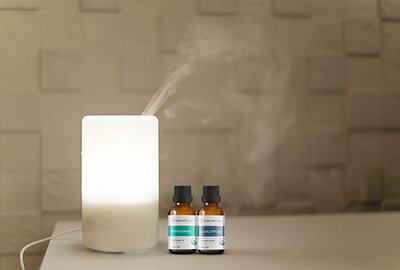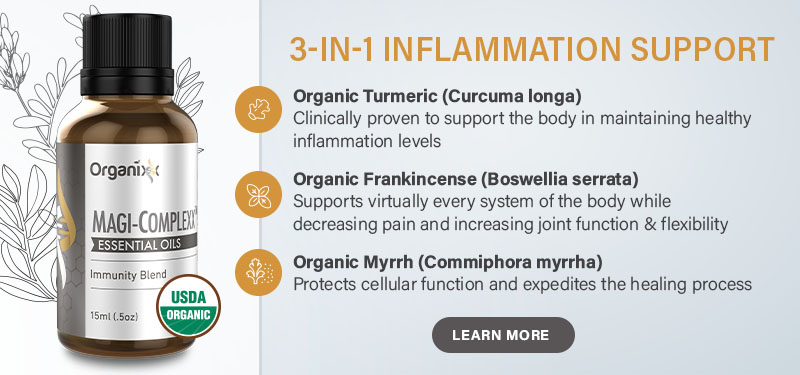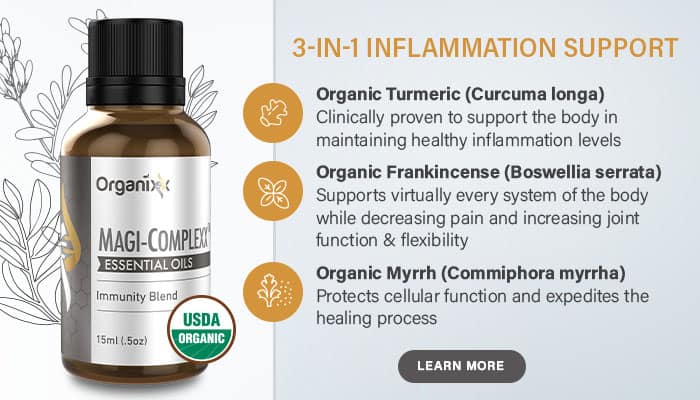If you’ve ever had the pleasure of smelling one up close, then you’re already familiar with one of the many special traits that characterize the eucalyptus tree.
Slightly sweet with a hint of mint and notes of pine, the amazing aroma of this Australia-native gum tree species is nothing short of unique. It’s long tickled the senses of both people and animals alike, with perhaps the most noteworthy savorers being koala bears that prefer eucalyptus leaves as a primary source of nourishment.
But there are many other things that make eucalyptus − also known as Tasmanian Blue Gum − desirable. Not the least of which are the many and diverse benefits of eucalyptus oil.
Extracted predominantly from the tree’s leaves, eucalyptus oil has been a prized Aboriginal folk medicine for many centuries. It has a well-established profile of therapeutic uses that include cleansing wounds, detoxifying the body, and supporting respiratory health, among other benefits.
Because of its rich historical significance in natural medicine, eucalyptus has piqued the interest of many a scientist today who are actively studying what it has to offer in the realm of modern health care.
Evidence based results thus far are intriguing to say the least. The research suggests that eucalyptus essential oil just might be one of the best kept secrets that’s missing from your medicine cabinet.
A Full-Spectrum Eucalyptus Oil Will Contain These 2 Key Constituents
Perhaps the most significant constituent in full-spectrum, therapeutic-grade eucalyptus oil is eucalyptol, also known as 1,8-cineole. It’s by far the most well-studied of the chemical compounds found in eucalyptus, and for good reason: its therapeutic properties are both vast and impressive.
Eucalyptol has been shown in the scientific literature to possess a full spectrum of bioactivity, demonstrating multiple beneficial properties including being:
- antimicrobial [1]
- analgesic [2,3]
- anti-inflammatory [4-6]
- antibacterial [7,8]
- antioxidant [9]
- antispasmodic [10-12]
- antiviral [13]
- hypotensive [14,15]
- mucolytic [16,17]
Small amounts of eucalyptol are commonly added to oral hygiene products like mouthwash to combat bad breath, as well as to cough suppressants such as cough drops, because of its freshening, minty flavor.
Eucalyptol also has the added benefit of targeting harmful microorganisms. This is why many people use products containing eucalyptol – including eucalyptus essential oil, of course – to fight things like colds and flu, coughs, sinus infections, and respiratory tract infections.

Another key constituent in the more common varieties of eucalyptus is piperitone, a monoterpenoid ketone that’s been shown to help break up mucus and improve airflow in the respiratory tract.
Possessing a strong pepperminty aroma, piperitone is reported to help clear up sinus congestion, with pronounced benefits against conditions like asthma and bronchitis [18].
There are many other constituents found in eucalyptus that support its therapeutic synergy, though they tend to be in much smaller quantities.
Did You Know There Are Different Varieties of Eucalyptus?
There are many different varieties of eucalyptus with their own unique constituent profiles, including Eucalyptus globulus, one of the most popular varieties that contains between 60%-75% eucalyptol. Other noteworthy eucalyptus varieties include [19]:
- Eucalyptus radiata, also known as Black Peppermint Oil. Native to Australia. E. radiata has a similar profile as E. globulus, containing 60%-75% eucalyptol and a noteworthy concentration of piperitone – though it has a milder aroma than E. globulus demarcated with sweeter, fruiter notes.
- Eucalyptus citriodora, also known as Lemon Eucalyptus Oil. Native to Australia. E. citriodora contains 40%-80% citronellal, a monoterpenoid with antimicrobial, antifungal, antispasmodic, and anticonvulsant properties [20].
- Eucalyptus dives, also known as Peppermint Eucalyptus Oil. E. dives contains 35%-50% piperitone and 23%-30% phellandrene, a compound known to help ward off insects.
- Eucalyptus bicostata, also known as Eucalyptus Blue. Native to Ecuador and Australia. E. bicostata contains high levels of alpha-pinene, an aromatic terpene also found in Cannabis sativa that boasts a broad spectrum of potential uses, including as a bronchodilator, an anti-inflammatory, and for anti-cancer support [21].
- Eucalyptus polybractea, also known as Blue Mallee Oil. Native to Australia. E. polybractea contains upwards of 85%-95% eucalyptol, with a strong aroma resembling cumin.
- Eucalyptus staigeriana, also known as Lemon Ironbark. E. staigeriana contains roughly 51% aldehydes, a class of aromatic compounds with strong anti-inflammatory and antiviral properties. Aldehydes are also known to have a sedative effect [22].
Eucalyptus Radiata: A Top Choice for Full-Spectrum Support
 When it comes to choosing a eucalyptus essential oil, you can clearly see that there are many unique facets to each one that are worth your time to carefully consider.
When it comes to choosing a eucalyptus essential oil, you can clearly see that there are many unique facets to each one that are worth your time to carefully consider.
What you want your oil to do for you, and how you want it to smell, will be among the major determining factors.
You’ll also need to decide between oil varieties that contain very high levels of mostly one type of compound, and those that contain a more harmonious balance of a lot of different types of compounds.
If full-spectrum activity is what you’re looking for (which many people are), E. radiata is likely your eucalyptus essential oil of choice. One reason many people prefer E. radiata is that the smell is not quite as intense as E. globulus, though it has a similar desirable constituent profile. E. radiata is also sweeter and fruitier smelling, lending to a more stimulating and rejuvenating experience.
As it turns out, the first commercial preparations of eucalyptus oil are also said to have been from E. radiata, this particular strain being the one that pharmacist Joseph Bosisto first developed for patient use back in 1852 [23].
It is from this special variety that eucalyptus oil became a “thing,” so to speak, paving the way for much of the scientific research that has since taken place with regards to this powerful botanical tincture.
4 Favorite Eucalyptus Oil Benefits & Uses
So, how does one go about using eucalyptus oil? Generally speaking, you don’t want to consume it – the exception, of course, being the small amounts of eucalyptol that are found in certain foods, medicines, and oral care products.
While there are, indeed, instances in which eucalyptus oil may be suitable for oral consumption, this should only be done with the proper type of oil for such use. You’ll also want to do so only under the careful supervision of a qualified health practitioner.
With that said, the most common way to safely and effectively use eucalyptus oil is as an aromatherapy using either an ultrasonic diffuser or a nebulizer.
Nebulizers tend to be more effective at delivering higher amounts of active ingredients into the air, and they work great in larger spaces. Ultrasonic diffusers are more suited to smaller rooms and are typically more cost-effective than nebulizers, but because they require water, they tend to be less potent.
If you already own one, you can also add eucalyptus oil to a humidifier, which functions similarly to an ultrasonic diffuser [24].
As far as the potential benefits to be gained,  people diffuse eucalyptus oil for many reasons…
people diffuse eucalyptus oil for many reasons…
- Folks suffering from the common cold, flu, sinus problems, and allergies are potential candidates, as are people with respiratory problems ranging from bronchitis and chronic obstructive pulmonary disease (COPD) to pneumonia and even tuberculosis.
- Eucalyptus oil can also be diffused simply to cleanse the air and freshen up a room, helping to eliminate stale and foul odors. Many people combine eucalyptus oil with other oils such as citrus and peppermint for added aromatherapeutic support.
- Eucalyptus oil also functions as an excellent topical salve for cuts, scrapes, burns, sores, and other types of skin wounds.
- Because of its reported pain-relieving properties, many people also report using eucalyptus oil to help soothe bug bites, bee stings, muscle soreness, itching, and other skin-associated discomfort.
Important Notes of Caution When Using Eucalyptus Oil
When using eucalyptus oil topically, be sure not to get any into your eyes or other sensitive areas, and avoid applying it directly into open wounds.
It is also always advisable to dilute each drop of eucalyptus oil with a quality carrier oil such as coconut oil, olive oil, or jojoba oil and to test for skin sensitivity before applying to the skin in larger quantities.
As with all tools to support your health, you’ll want to use only the highest quality organic oils. While the risk of side effects is minimal, always seek medical advice from a qualified health practitioner to guide you for the appropriate usages for your individual health needs.
The powerhouse trio of herbs in Magi-Complexx Essential Oil provides the strongest, most synergistic healing effect, helping sufferers of arthritis pain, constant muscle aches and pains, neuropathy, systemic inflammation, slowed wound healing, circulatory challenges, as well as skin irritations like eczema, psoriasis, and acne.




